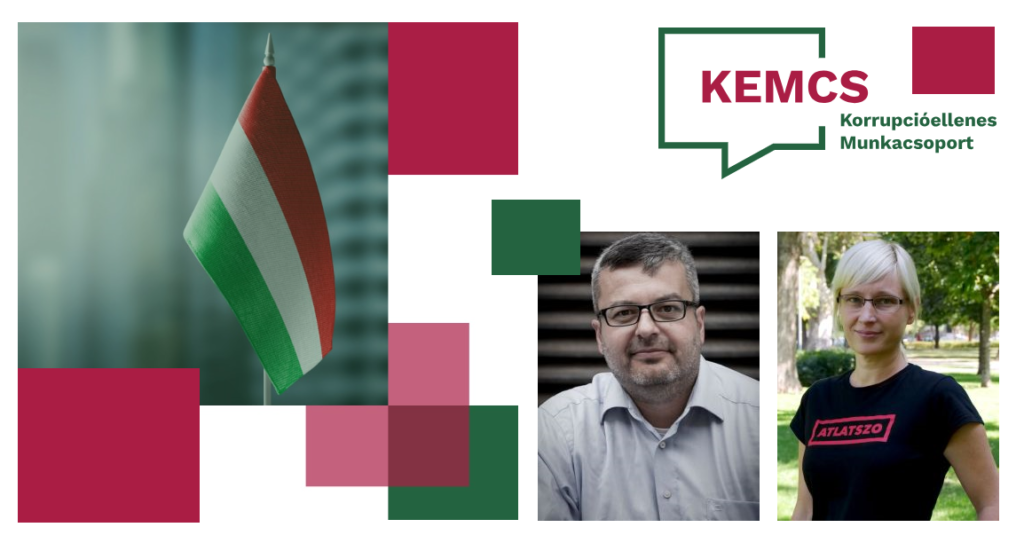The https://english.atlatszo.hu use cookies to track and profile customers such as action tags and pixel tracking on our website to assist our marketing. On our website we use technical, analytical, marketing and preference cookies. These are necessary for our site to work properly and to give us inforamation about how our site is used. See Cookies Policy
Eszter Katus replaces Tamás Bodoky in the Anti-Corruption Working Group of the Integrity Authority
As an NGO, Atlatszo gained membership in 2022 in the Anti-Corruption Working Group of the Integrity Authority, to which it delegated editor-in-chief Tamás Bodoky. As the law does not allow for the substitution of a delegated member of the NGO, Bodoky resigned at the end of January this year due to other commitments. Atlatszo nominated Eszter Katus as a member of the Task Force through a new application. Yesterday, Ferenc Biró, the chairman of the Integrity Authority, informed our colleague that she had been accepted to join the Working Group.
After the Hungarian government refused to join the European Public Prosecutor’s Office, it set up the Integrity Authority to regain access to frozen EU funds. Its creation was one of the 17 commitments to fight corruption and waste of public money that the European Commission has made conditional on the establishment of the Authority.

In addition to the Integrity Authority, an anti-corruption task force has been set up, which includes delegates from NGOs that are independent of the government. Applications from independent watchdog organizations Transparency International Hungary and K-Monitor were also accepted. The Anti-Corruption Working Group has analytical, proposal, opinion, and decision-preparation tasks. Ten members delegated by state organizations and ten civil society members work together in the Task Force, and multiple sub-working groups have been set up, in which both public servants and civil society members participate.
The Task Force produces an annual report analysing corruption and corruption risks and trends.
Since the law does not allow for the substitution of a delegated member of the NGO, Bodoky resigned at the end of January this year due to other commitments, and Atlatszo nominated Eszter Katus as a member of the working group through a new application.
Yesterday, Ferenc Biró, the chairman of the Integrity Authority, informed our colleague that she had been accepted to join the Working Group.
Eszter Katus has been working full-time at Atlatszo as a journalist and editor since 2019. Her work includes investigating cases of tender and public procurement corruption: she investigates public procurement procedures with the help of an accredited public procurement consultant, and informs the authorities about suspected cases of corruption through public interest reporting. Following her reports, multiple official proceedings have been started, one of which we reported on recently:
The cooperation between civil and public delegates and the Integrity Authority in the Anti-Corruption Task Force has not been always smooth: last year, a civil member of the Task Force resigned due to secrecy over the Anti-Corruption Strategy, and not all civil members endorsed the first report of the Task Force. Tamás Bodoky, as a journalist, has experienced a somewhat anti-transparency attitude on the part of the delegates of the state, as he was categorically forbidden to report on the sessions of the Task Force or to quote anything from the meetings in press stories.
At the same time, Atlatszo still considers the working group a good initiative, where civil watchdog organisations can voice their suggestions to public actors and hold them accountable for the implementation of anti-corruption measures. Our participation in the working group is not about recognising anti-corruption measures taken by the Hungarian government, but about holding them to account. We would like to keep on the agenda, for example, our proposal to investigate the press relations of certain key public bodies, and more specifically the discrimination of certain press products, which did not receive support from the state-delegated members of the group last year.

